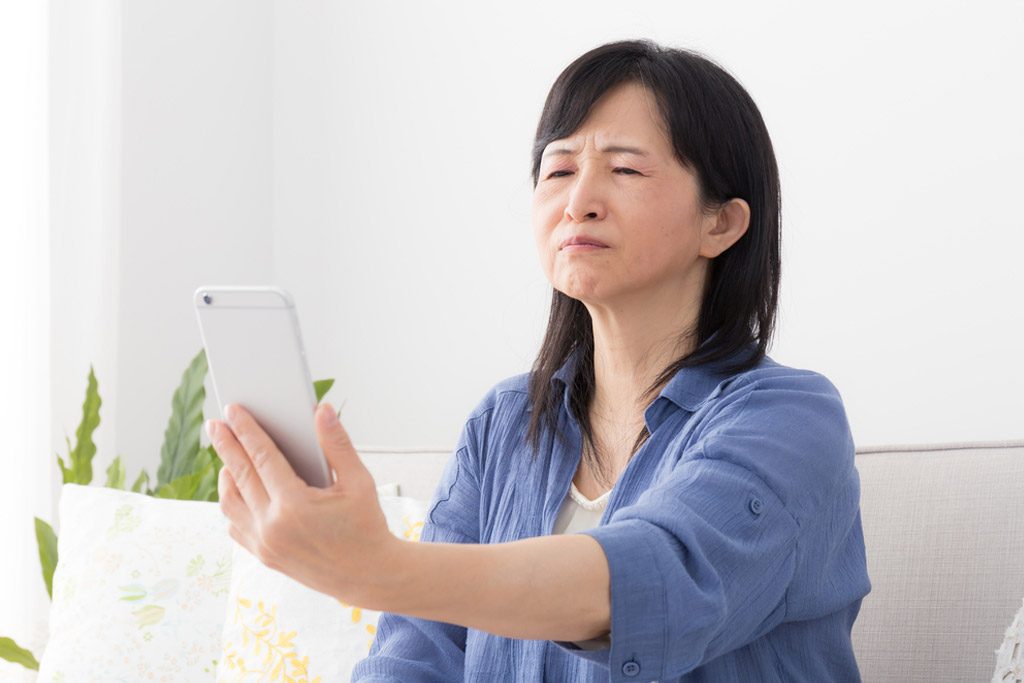
People who struggle to read small print or hold items like books and smartphones at a distance to see clearly may need to get checked for presbyopia. This eye condition, known as “lao hua” in Singapore, is caused by the natural ageing of the eyes and is characterised by a gradual loss of near vision.
Why Does Presbyopia Occur?
As a person ages, the eye’s lens starts to lose elasticity and becomes rigid, affecting its ability to adjust its shape and focus light on the retina effectively. This results in poor vision when reading and performing up-close activities. Aside from age, various factors may also contribute to the development of presbyopia, such as the use of certain drugs or the presence of certain medical conditions, including farsightedness, diabetes or cardiovascular disease.
Is Presbyopia the Same as Farsightedness?
Though both cause distance vision problems, presbyopia and farsightedness (hyperopia) are different. Farsightedness is a refractive error, whereas presbyopia is an age-related condition.
How Does Presbyopia Manifest Itself?
After age 40, some symptoms of presbyopia may become apparent. These include headaches or eye strain when reading or performing up-close tasks, blurry vision at close distances, and looking at digital screens or papers at arm’s length to obtain a clearer view. Consult an eye specialist if you exhibit any of these symptoms.
Does Presbyopia Get Worse Over Time?
As presbyopia is a degenerative vision disorder, visual acuity will decrease over time. Regular eye exams, prescription glasses and eye treatments where needed, are essential for proper eye care.
In What Ways Can Presbyopia Be Treated?
Presbyopia can be corrected with several treatment options. These include wearing prescription reading glasses, bifocals, or progressive glasses. Patients may also undergo refractive surgery, such as laser-assisted in situ keratomileusis (LASIK) surgery, to achieve monovision. Get your vision evaluated by an ophthalmologist for a personalized treatment plan.







